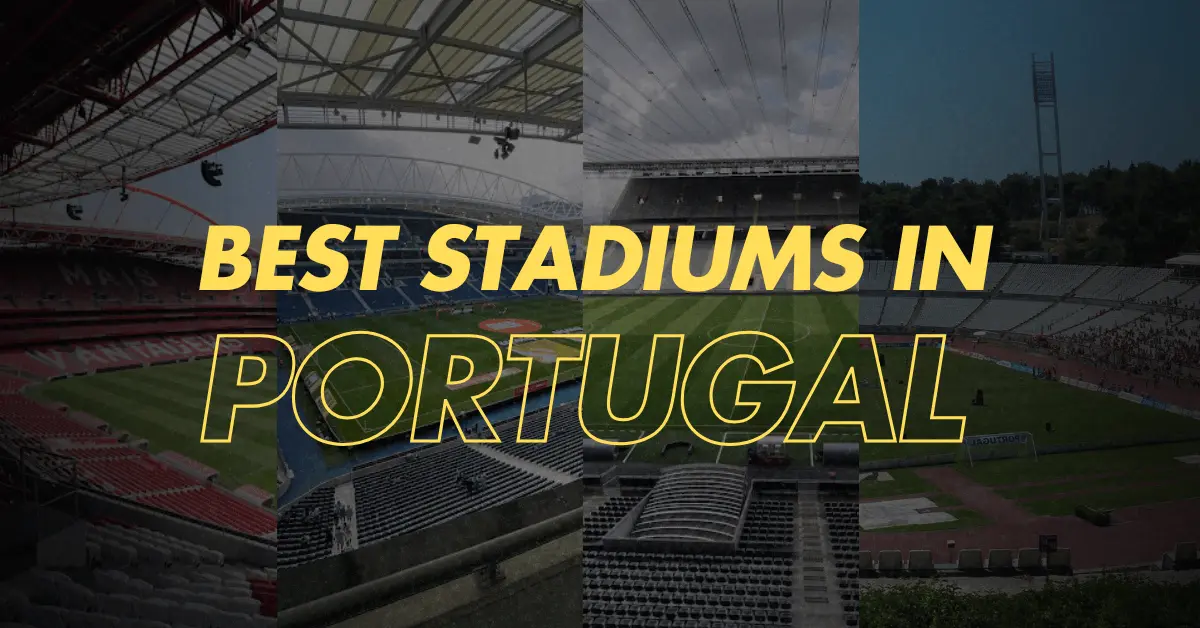Portugal, a country rich in history and culture, is also home to some stunning stadiums. These venues are not just for sports; they are architectural marvels and cultural hubs.
Visiting a stadium in Portugal is an experience like no other. Each stadium has its own story, blending modern design with the passion of Portuguese sports fans. From the bustling city of Lisbon to the scenic views of Porto, these stadiums offer more than just a place to watch a game.
They are symbols of local pride and tradition. Whether you’re a football fan or an architecture enthusiast, Portugal’s stadiums provide a fascinating glimpse into the country’s love for sports and design. Ready to explore the best stadiums in Portugal? Let’s dive in!
Top Stadiums In Portugal
Portugal is home to some of the most impressive stadiums in the world. These venues not only host thrilling football matches but also serve as cultural landmarks. From historic arenas to modern architectural marvels, Portugal offers a wide range of stadiums that captivate fans and tourists alike. Let’s explore the top stadiums in Portugal and discover what makes them unique.
Historic Venues
Portugal boasts several stadiums with rich histories. These historic venues have witnessed countless memorable moments in football. They hold a special place in the hearts of fans. Here are some of the most famous historic stadiums:
- Estádio do Restelo: Located in Lisbon, this stadium opened in 1956. It is home to Belenenses SAD. The stadium has a capacity of 19,856 seats.
- Estádio D. Afonso Henriques: Situated in Guimarães, it opened in 1965. It is named after the first King of Portugal. The stadium can hold 30,165 spectators.
- Estádio das Antas: This was the former home of FC Porto. Opened in 1952 and demolished in 2004. It was known for its passionate crowd and historic matches.
These stadiums are not just about football. They are a part of Portugal’s heritage. Visiting these venues offers a glimpse into the country’s rich football history.
Modern Marvels
Portugal also has state-of-the-art stadiums that showcase modern architecture and technology. These venues offer an unparalleled experience for fans. They are designed with comfort and convenience in mind. Some of the most notable modern stadiums include:
| Stadium | Location | Opened | Capacity |
|---|---|---|---|
| Estádio da Luz | Lisbon | 2003 | 64,642 |
| Estádio do Dragão | Porto | 2003 | 50,033 |
| Estádio José Alvalade | Lisbon | 2003 | 50,095 |
The Estádio da Luz is home to SL Benfica. It is known for its stunning design and electric atmosphere. The Estádio do Dragão serves as the home ground for FC Porto. It is famous for its modern facilities and breathtaking views. The Estádio José Alvalade is where Sporting CP plays. It stands out with its colorful seats and fan-friendly amenities.
These modern marvels are not only used for football. They also host concerts and other major events. Their advanced features make them popular choices for various occasions. Visiting these stadiums provides a glimpse into the future of sports venues.
Estádio Da Luz
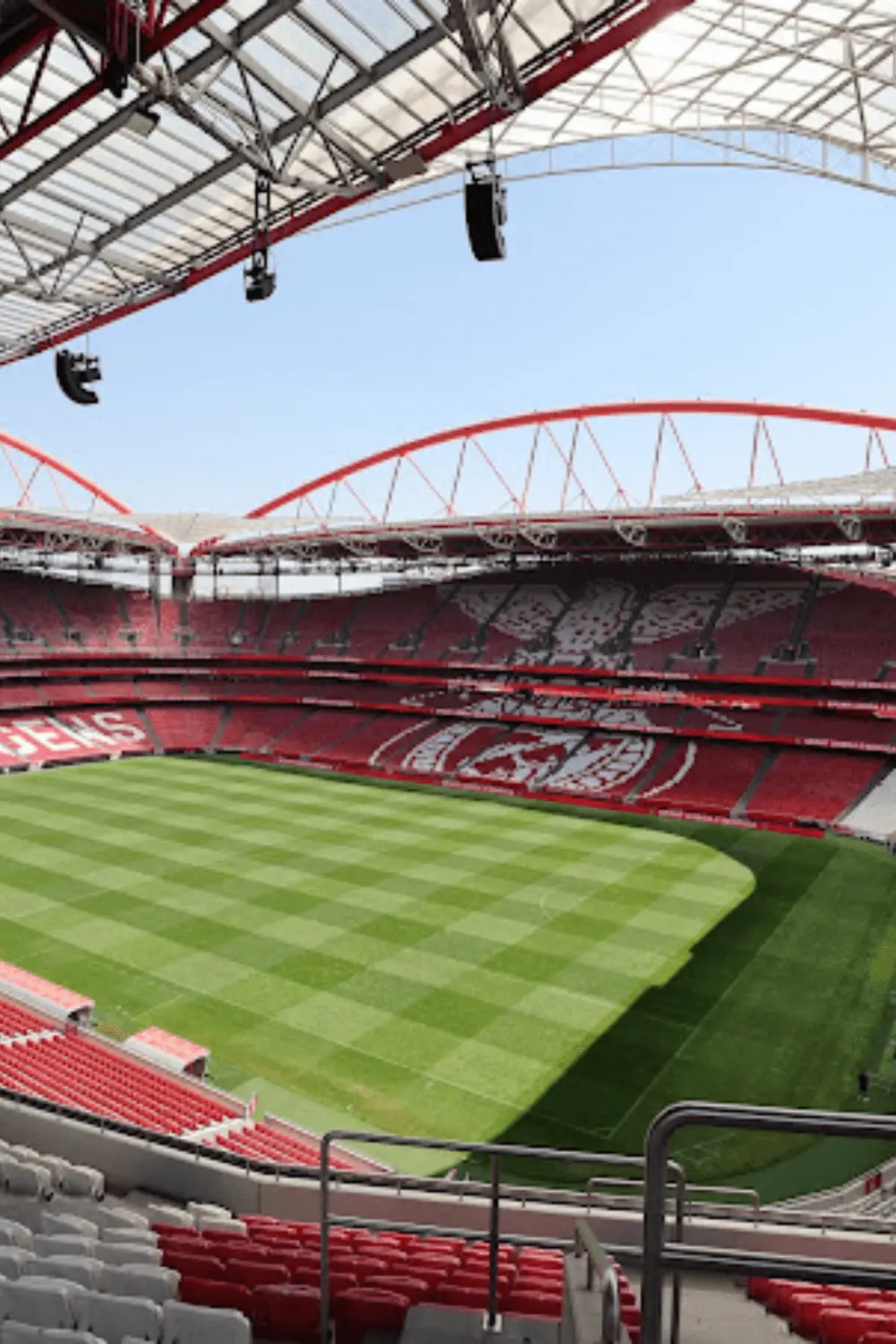
Portugal is home to some of the most stunning stadiums in the world. Among them, the Estádio da Luz stands out. This magnificent arena is a must-see for football fans. Known for its vibrant atmosphere, it offers an unforgettable experience. Let’s explore more about this iconic stadium.
Home Of Sl Benfica
Estádio da Luz is the proud home of SL Benfica. This team is one of Portugal’s top football clubs. They have a rich history and passionate supporters. The stadium has been their home since 2003. It replaced the original Estádio da Luz, which was built in 1954.
Here are some interesting facts about SL Benfica and their stadium:
- SL Benfica has won over 80 major trophies.
- The stadium can hold more than 65,000 fans.
- It hosted the UEFA Euro 2004 final.
- It also hosted the UEFA Champions League final in 2014.
Fans of SL Benfica create an electric atmosphere. Their chants and songs fill the air. This makes every match a thrilling experience. Visiting Estádio da Luz is a must for football lovers.
Architectural Features
The design of Estádio da Luz is truly impressive. It was created by architect Damon Lavelle. The stadium features a unique roof design. The roof is made of polycarbonate panels. These panels allow natural light to flood the stadium. This gives the arena its name, “Stadium of Light.”
The stadium also boasts:
- Four towering floodlights for night games.
- A modern, bowl-shaped seating arrangement.
- State-of-the-art facilities for players and fans.
Another striking feature is the exterior. The red and white colors represent the team. The design is both functional and visually appealing. The stadium is not just for football. It also hosts concerts and other events. This makes it a versatile venue.
Estádio da Luz is more than just a stadium. It is a symbol of pride for SL Benfica fans. Its architectural beauty and modern amenities make it a standout. Visiting this stadium is a unique and memorable experience.
Estádio Do Dragão
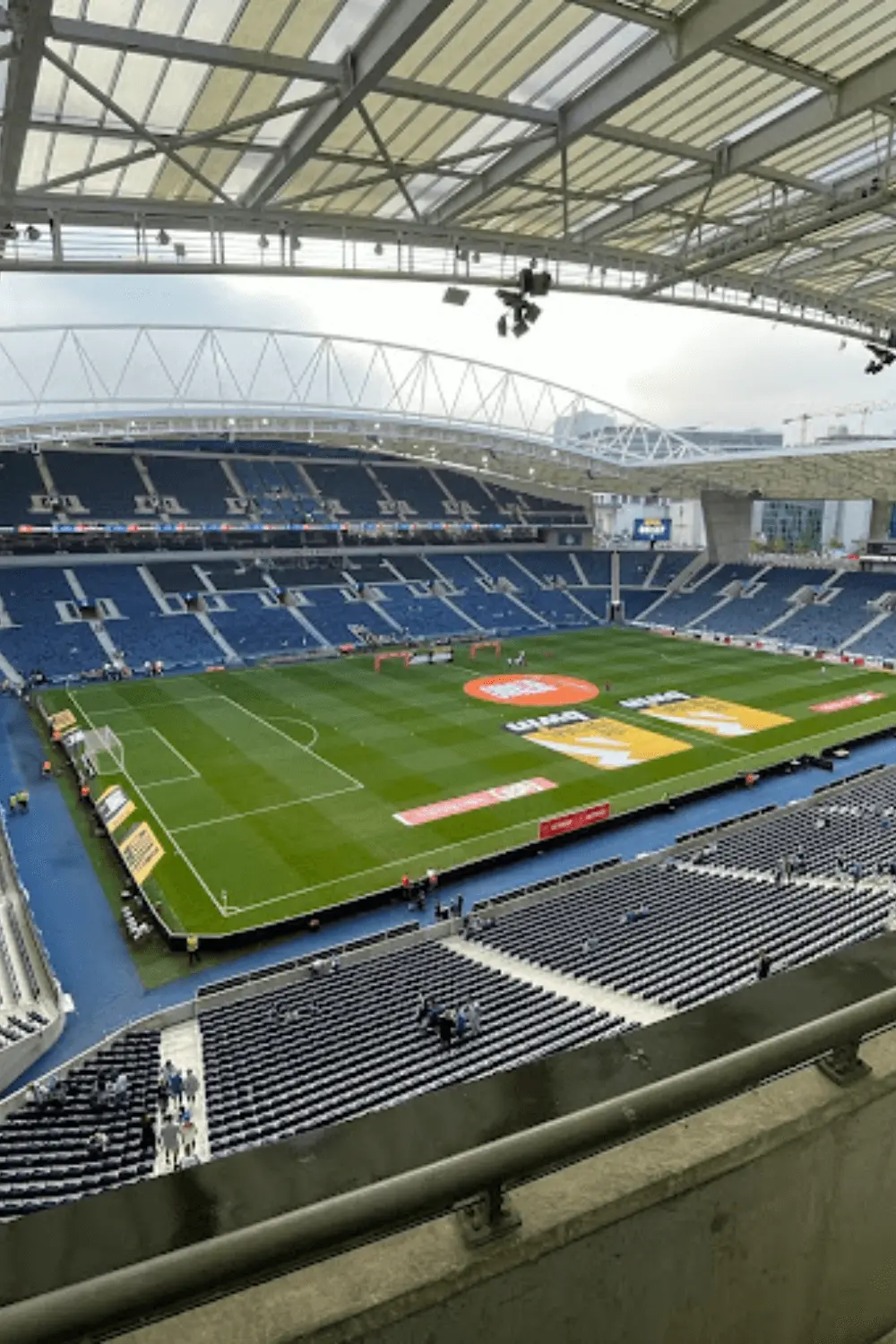
Estádio do Dragão is one of the most famous stadiums in Portugal. Located in Porto, it is the home ground of FC Porto. Known for its modern architecture and vibrant atmosphere, it has hosted numerous exciting matches. Fans from all over the world come to witness the electrifying games held here. The stadium is a true gem for football enthusiasts.
Fc Porto’s Fortress
Estádio do Dragão is more than just a stadium. It is FC Porto’s Fortress. The stadium was inaugurated in 2003 and has since become an iconic landmark. With a seating capacity of over 50,000, it provides an incredible experience for fans. The modern design ensures excellent views from every seat.
Some features of Estádio do Dragão include:
- State-of-the-art facilities
- Exceptional acoustics
- Spacious seating arrangement
- Advanced security measures
The stadium also has numerous amenities for visitors:
- Restaurants and cafes
- Merchandise stores
- Parking spaces
- Accessible facilities for disabled fans
These features make it a favorite among fans and players alike. The atmosphere during matches is electric, with fans creating a sea of blue and white. The stadium truly lives up to its nickname, providing a fortress-like advantage to FC Porto.
Notable Matches
Estádio do Dragão has hosted many memorable matches. One of the most notable matches was the opening game of Euro 2004. Portugal faced Greece in a thrilling match. Although Portugal lost, it was a historic event for the stadium.
Another significant match was the 2005 UEFA Champions League group stage. FC Porto played against Chelsea, drawing a massive crowd. The atmosphere was intense, and the match ended in a dramatic draw. It showcased the stadium’s ability to host high-stakes games.
In recent years, the stadium hosted the 2021 UEFA Nations League Final. Portugal played against the Netherlands and won the title. This match was a testament to the stadium’s world-class facilities and excellent organization.
Other notable matches include:
- FC Porto vs. Benfica – A classic Portuguese derby
- FC Porto vs. Sporting CP – Another fierce rivalry
- Various international friendlies
These matches highlight the stadium’s importance in Portuguese football. It is a venue where history is made and where fans create unforgettable memories. Each match at Estádio do Dragão is a celebration of football and a testament to the sport’s passion.
Estádio Alvalade
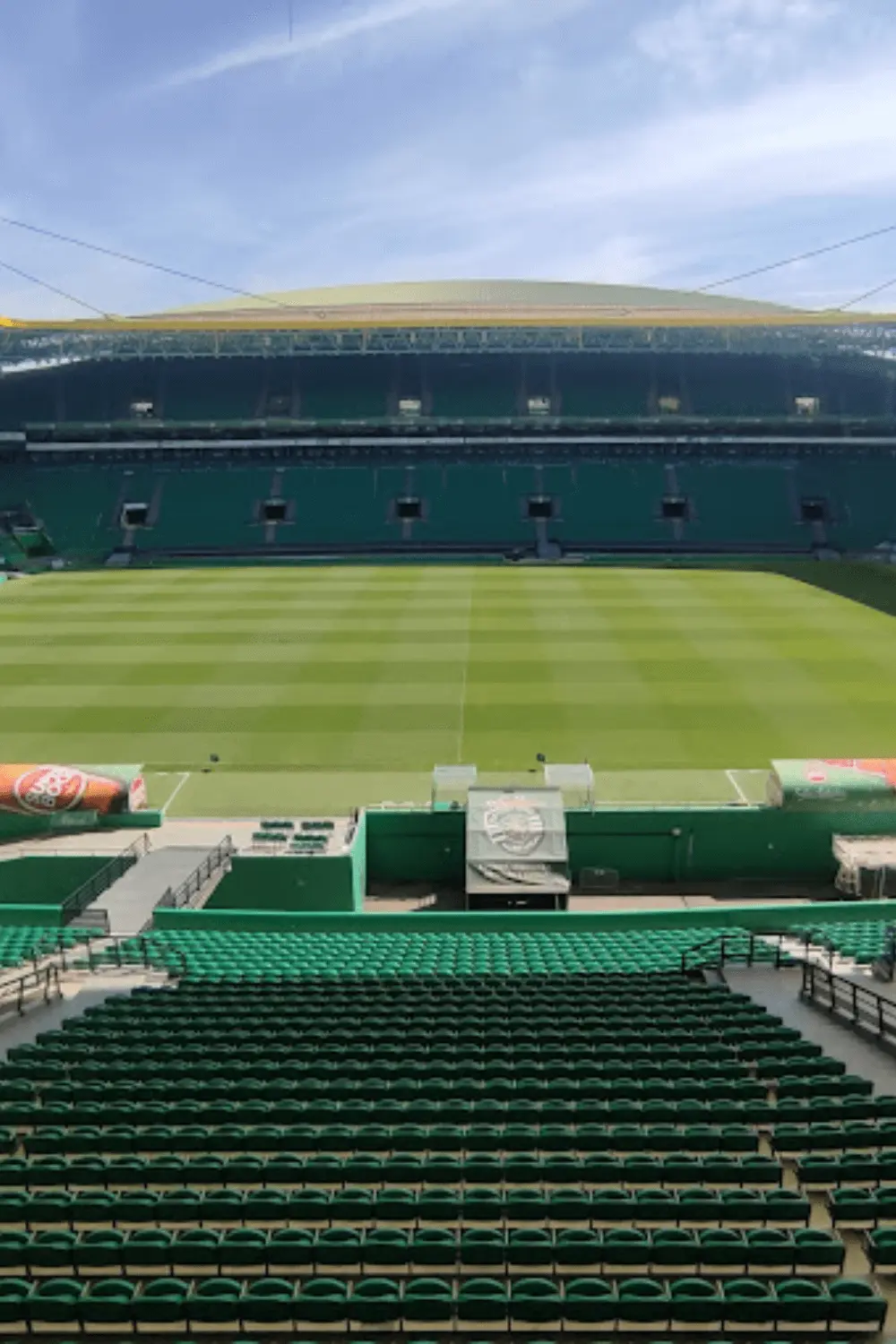
Portugal is famous for its rich culture, stunning landscapes, and passionate football fans. The country boasts some of the most amazing stadiums in Europe. One of the most notable ones is Estádio Alvalade. This stadium is home to Sporting CP, one of Portugal’s top football clubs. It is a place of history, pride, and unforgettable moments.
Sporting Cp’s Legacy
Estádio Alvalade is deeply linked with Sporting CP. This club has a long and proud history. Founded in 1906, Sporting CP is one of the oldest football clubs in Portugal. The club has produced many great players and won numerous titles.
Some key points about Sporting CP’s legacy:
- Founded in 1906
- Multiple-time Primeira Liga champions
- Produced famous players like Cristiano Ronaldo
- Known for its youth academy
Sporting CP’s youth academy is one of the best in the world. Many young talents are nurtured here. The club’s philosophy emphasizes developing homegrown players. This has led to the rise of many stars.
Estádio Alvalade itself is a symbol of Sporting CP’s legacy. The stadium has witnessed countless memorable matches. It stands as a testament to the club’s enduring spirit and ambition.
Fan Experience
The fan experience at Estádio Alvalade is truly unique. The atmosphere is electric on match days. Fans are known for their passion and loyalty. They create an unforgettable ambiance that rivals any stadium in the world.
Key aspects of the fan experience include:
- Exciting match-day atmosphere
- Passionate and loyal fans
- Modern facilities and amenities
- Easy access to the stadium
Estádio Alvalade offers modern facilities to ensure a comfortable visit. There are numerous food and beverage options. Fans can enjoy a variety of local and international cuisines. The stadium also has excellent seating arrangements. Every seat offers a great view of the pitch.
Accessibility is another highlight. The stadium is located in Lisbon, making it easy to reach. Public transport options are plentiful. This ensures that fans can travel to and from the stadium with ease. For those driving, there is ample parking available.
Overall, the fan experience at Estádio Alvalade is second to none. Whether attending a thrilling match or exploring the stadium, visitors are sure to have a memorable time.
Estádio Municipal De Braga
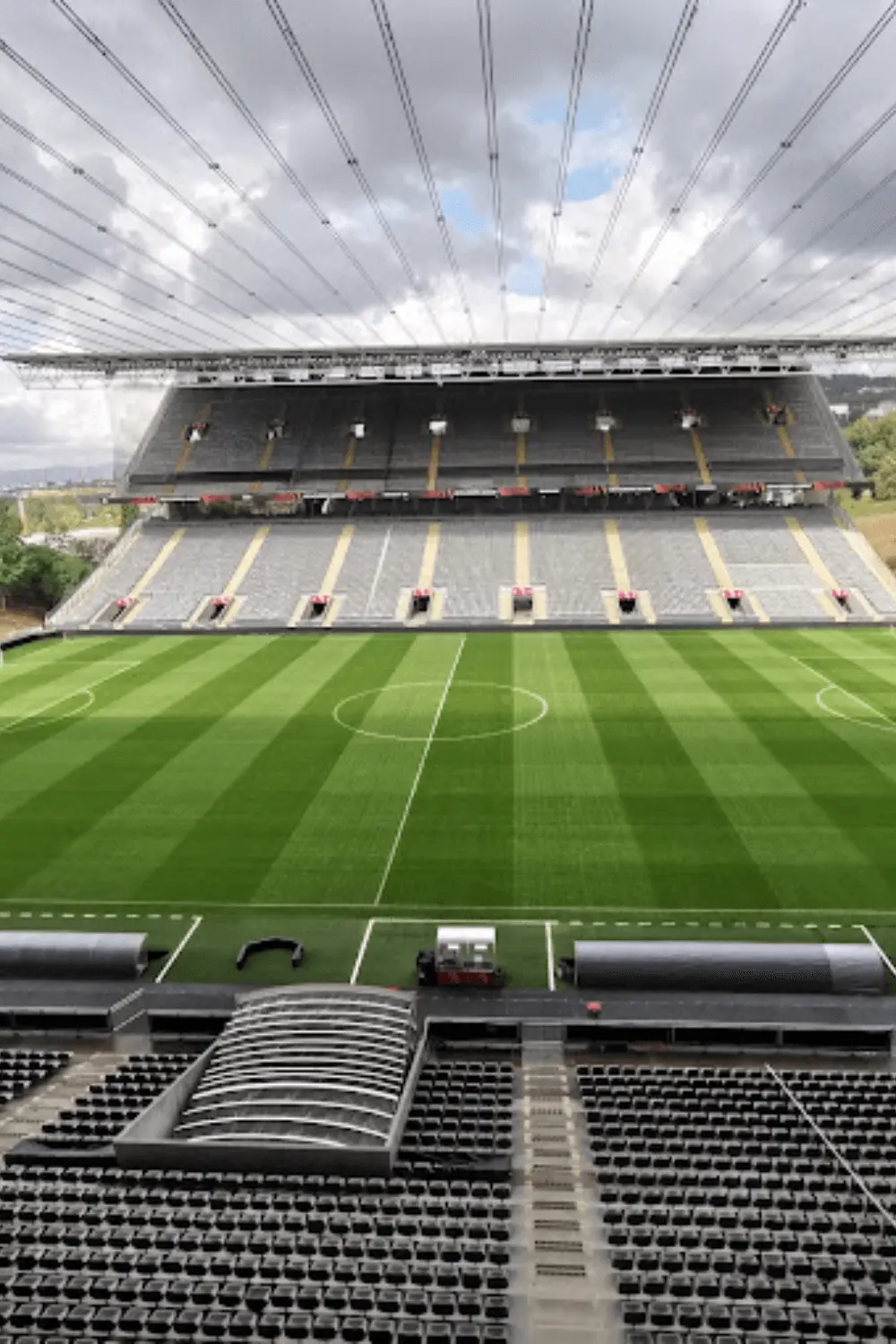
Portugal is home to some of the most beautiful and unique stadiums in the world. One of these is the Estádio Municipal de Braga. This stadium is known for its amazing design and cultural importance. Built into a rock quarry, it offers stunning views and a memorable experience for visitors.
Unique Design
Estádio Municipal de Braga stands out due to its unique design. The stadium is carved into the side of a mountain, giving it a distinctive look. The design was created by architect Eduardo Souto de Moura. It won the Pritzker Prize, which is a big honor in architecture.
Key features of the stadium include:
- Two main stands – only two sides have seating.
- Open ends – the other sides are open, offering views of the rock quarry.
- Natural elements – the rock face is left exposed, blending nature with modern design.
These elements make the stadium not just a place for sports, but also a work of art. The design allows fans to enjoy both the game and the natural beauty around them. This creates a special atmosphere that is hard to find elsewhere.
Cultural Significance
The stadium is more than just a place for football; it has cultural significance. Estádio Municipal de Braga is a symbol of modern architecture in Portugal. It represents the blend of traditional and contemporary styles. This makes it an important landmark for both locals and tourists.
Some cultural highlights include:
- Concerts and events – it hosts music concerts and other large events.
- Community pride – the stadium is a source of pride for the city of Braga.
- Tourist attraction – visitors come to see its unique design and stunning views.
These events help bring the community together. They also attract visitors from around the world. The stadium has become an iconic part of Braga’s identity. Its cultural impact goes beyond sports, making it a must-visit location.
Estádio Nacional
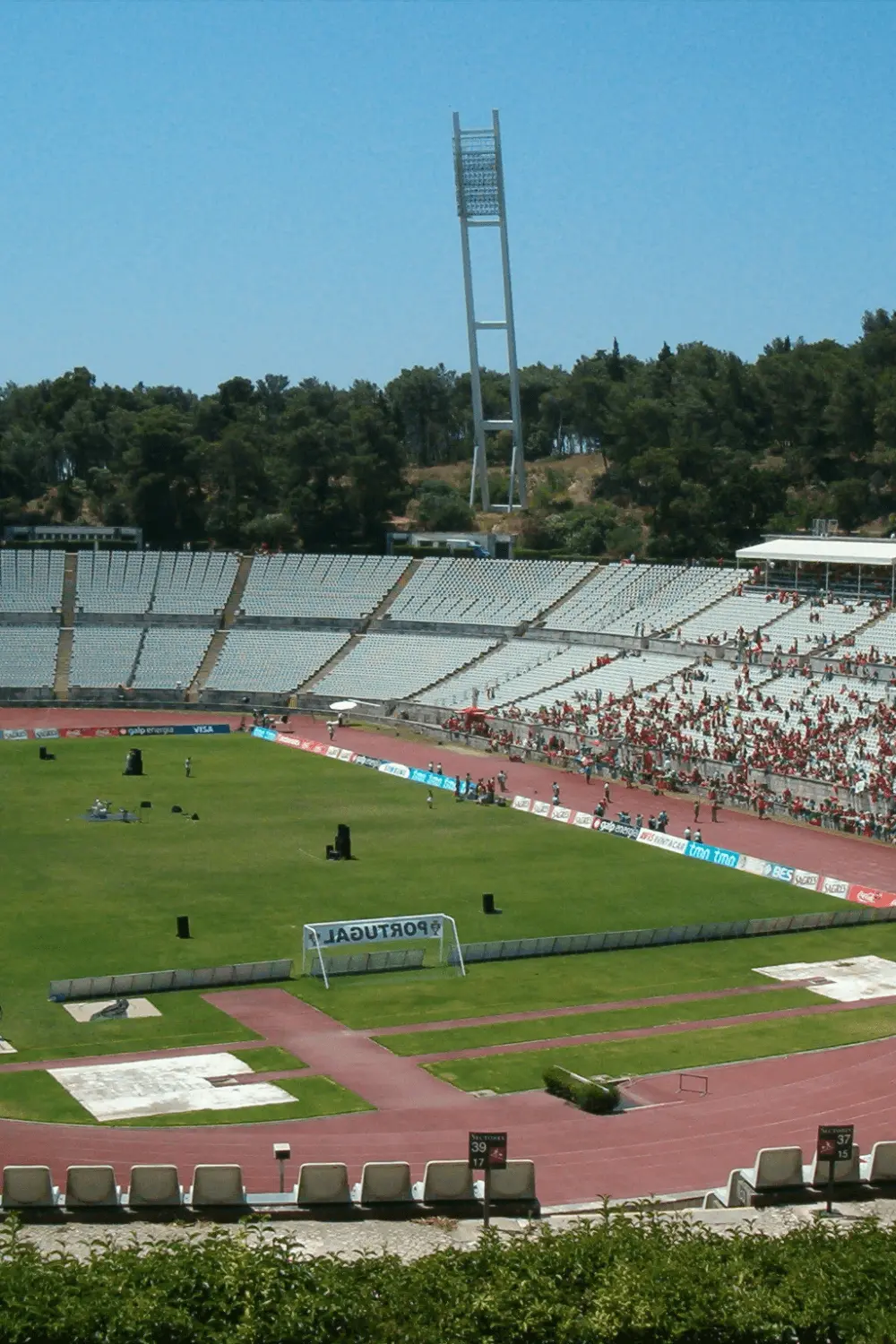
Portugal is home to some of the most beautiful and historic stadiums in the world. One of the most famous is Estádio Nacional. Located in Lisbon, this stadium is not just a sports venue but a symbol of Portugal’s rich history and culture.
Historical Importance
Estádio Nacional holds a special place in Portuguese history. It was built in 1944 during the Estado Novo regime. The stadium was designed by architect Miguel Jacobetty and it reflects the architectural style of that era.
Some key points about its historical importance include:
- First major stadium built in Portugal.
- National symbol during the Estado Novo regime.
- Hosted many important events in Portuguese history.
The stadium is part of the Jamor Sports Complex. This complex includes several other sports facilities. Estádio Nacional has been the venue for many national and international matches. It has also seen many political and cultural events.
Its construction marked a significant moment in Portuguese sports history. It was the first stadium of its kind in the country. Today, it remains a symbol of national pride.
Major Events
Estádio Nacional has hosted numerous major events over the years. One of the most famous is the 1967 European Cup Final. This match saw Celtic FC defeat Inter Milan, making history for being the first British club to win the Cup.
Other important events include:
- Taça de Portugal finals held annually.
- UEFA European Championship matches in 2004.
- Concerts and cultural events featuring international artists.
The stadium has also been the site for many national team matches. These matches have seen some of the greatest moments in Portuguese football. The atmosphere during these games is electric, making it a must-visit for any football fan.
Estádio Nacional is not just a sports venue. It is a place where history has been made, and where many more memories will be created in the future.
Estádio Do Restelo
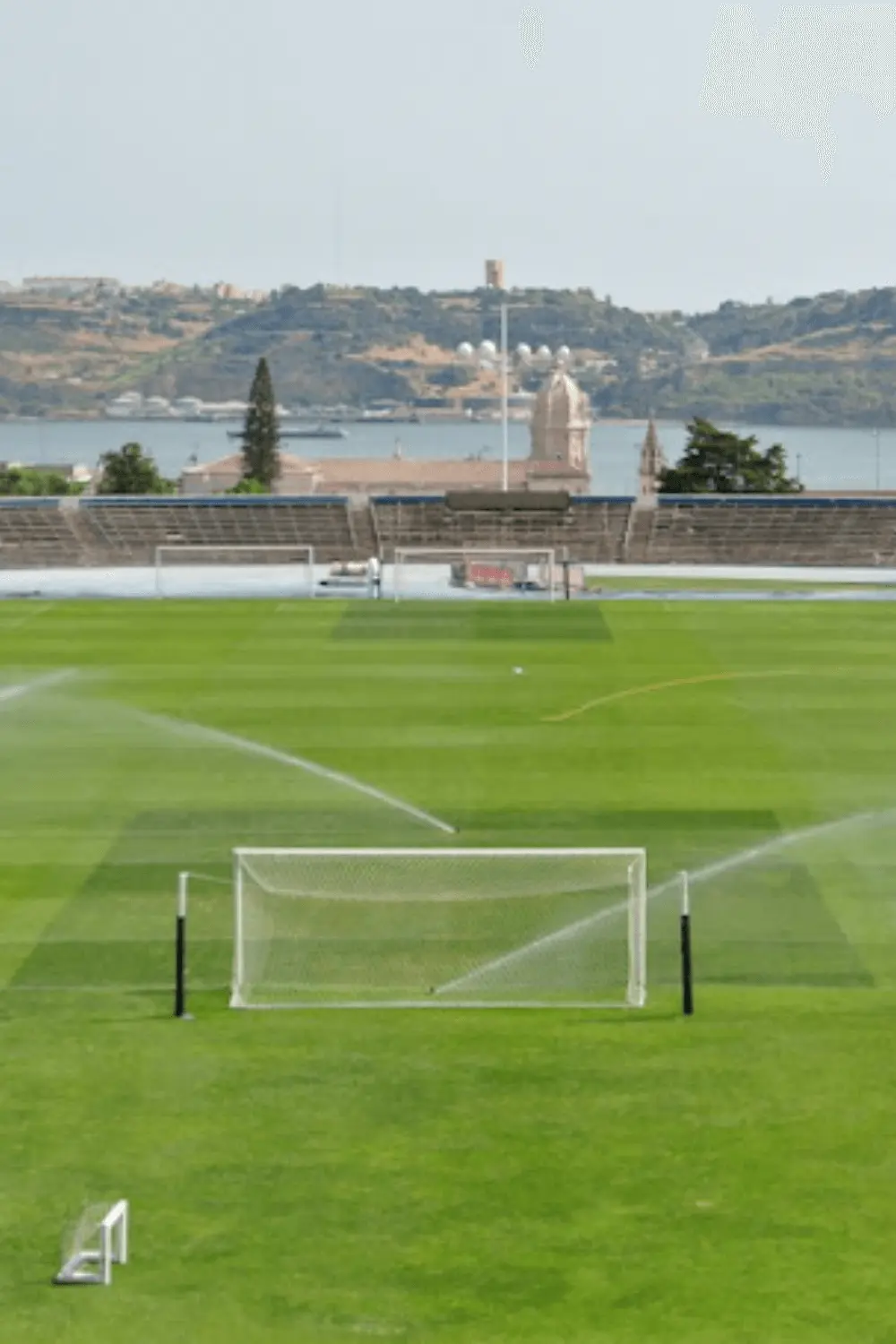
Portugal is home to some of the most beautiful and historic stadiums. One of the most notable is Estádio do Restelo. Located in Lisbon, this stadium has a rich history and a vibrant atmosphere. It is a place where culture and sports come together, creating a unique experience for visitors and locals alike.
Cultural Hub
Estádio do Restelo is more than just a sports venue. It is a cultural hub that hosts various events throughout the year. The stadium is known for its beautiful architecture and offers breathtaking views of the Tagus River. Many concerts and festivals take place here, attracting people from all over the country. The stadium also features:
- Art exhibitions
- Cultural fairs
- Local markets
These events make Estádio do Restelo a lively place, even when there are no games. The stadium’s location in Lisbon also makes it a convenient spot for tourists. They can enjoy the cultural activities and then explore the city.
Local Team Spirit
Estádio do Restelo is the home ground for the Belenenses football team. The local team spirit is very strong here. Fans are passionate and show great support during the matches. The atmosphere during game days is electric, with fans cheering and singing. Here are some key aspects of the local team spirit:
- Community events organized by the club
- Youth training programs to nurture new talent
- Fan clubs that gather before and after matches
The stadium becomes a sea of blue, the team’s color, on match days. This sense of community and spirit makes every game a special event. The local fans are proud of their team and their stadium, making Estádio do Restelo a must-visit for any football lover.
Conclusion
Portugal boasts some of the best stadiums in the world. These venues offer unforgettable experiences for sports fans. From modern designs to rich histories, each stadium has unique charm. Visiting these places can enhance any trip to Portugal. Whether you’re a football fan or just love architecture, you’ll find something special.
Plan your visit and enjoy the vibrant atmosphere. Embrace the passion and energy that fills these stadiums. Portugal’s stadiums truly stand out. Don’t miss the chance to explore them.

